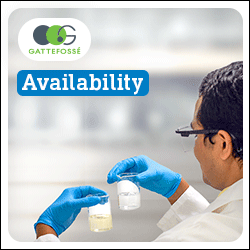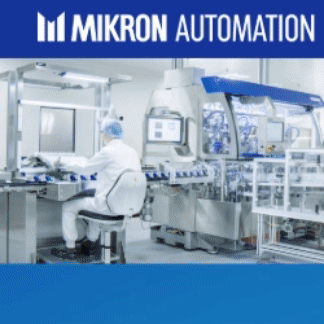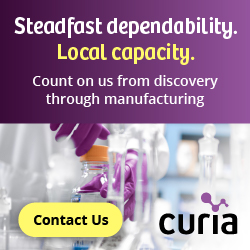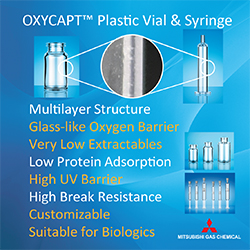Acelyrin Announces Positive Top-line Results From Phase 2b/3 Clinical Trial of Izokibep in Psoriatic Arthritis
ACELYRIN, INC. recently announced its global Phase 2b/3 clinical trial of izokibep in psoriatic arthritis (PsA) met the primary endpoint of ACR50 at week 16 with high statistical significance. Results from the 160-mg weekly (QW) and every other week (Q2W) arms showed improved magnitude of responses on higher hurdle endpoints such as ACR70, PASI100, and Minimal Disease Activity relative to the Phase 2 80-mg Q2W dose. This is notable given a higher baseline disease burden in the Phase 2b/3 trial population relative to the Phase 2 trial.
Izokibep was well-tolerated with a favorable safety profile consistent with previous experience and the IL-17A class, without evidence of the safety liabilities observed with targeting IL-17A&F. The trial had a low study discontinuation rate of < 3%. Mild-to-moderate injection site reactions (ISRs) were observed with discontinuations due to ISR < 2%. There were two cases of mild candida – one in the placebo arm and one in the 160 mg QW arm – and no cases of suicidal ideation/behavior.
Pre-specified analyses continue to support the potential for differentiation in enthesitis resolution. Consistent high magnitude absolute responses were demonstrated in the Phase 2-comparable population (baseline Leeds Enthesitis Index (LEI) 1 or 2) although enthesitis resolution overall was not statistically significant due to high placebo response. Izokibep achieved clinically meaningful resolution in patients with the highest burden of enthesitis (baseline LEI 3-6) relative to placebo an effect not previously reported by other agents.
“These positive Phase 2b/3 data reinforce the potential demonstrated in Phase 2 for izokibep to provide meaningful benefit in treating the debilitating signs and symptoms of active psoriatic arthritis in the joints and skin, as well as enthesitis where the results in the most severe patients are encouraging and warrant further study,” said Philip Mease, MD, MACR, Director of Rheumatology Research at Swedish Medical Center. “We have observed from the Phase 2 46-week data that there is no safety limitation to long-term treatment with izokibep and that longer duration of therapy demonstrated the potential for even further improvements over time.”
“We are excited about our continued progress with izokibep in both PsA and HS,” added Shao-Lee Lin, MD, PhD, Founder and CEO of ACELYRIN. “The positive PsA study results at week 16 and the magnitude of responses give us conviction that 160 mg Q2W delivers higher clinical responses than those reported by the approved IL-17A agents, and responses comparable to those reported by the IL-17A&F agents without the associated safety liabilities. Across indications, we have observed clinically meaningful and potentially differentiated benefit from izokibep. We have consistently seen responses in high order efficacy measures such as ACR70 and PASI100 in PsA and HiSCR100 in HS that move patients toward disease resolution. This reinforces our enthusiasm for developing izokibep as an important potential new medicine for patients.”
The Phase 2b/3 clinical trial (NCT05623345) is a global, multi center, randomized double-blind, placebo-controlled, trial evaluating the safety and efficacy of izokibep dosed subcutaneously 160 mg every week (QW) or every 2 weeks (Q2W) and 80 mg every 4 weeks (Q4W) versus placebo. 351 adult patients with active PsA were enrolled across 71 sites in the United States and Europe and randomized across the four arms. Dose sequencing in the 160 mg Q2W and 80 mg Q4W arms was impacted by a third-party programming error. The range of pharmacokinetic data from both the 160 mg QW and Q2W arms in PsA demonstrated comparable exposures to the same dose levels from the Phase 2b HS study.
For more information about the Phase 2b/3 PsA clinical trial, please visit www.clinicaltrials.gov.
Psoriatic arthritis (PsA) is a chronic immune-mediated inflammatory disease characterized by multiple manifestations including joint inflammation, skin lesions consistent with psoriasis, and enthesitis (painful inflammation of the small, dense tissues that connect ligament and tendons to bone), all contributing to reduced quality of life. It is estimated that approximately 30% of the 125 million people living with psoriasis worldwide will also develop PsA over time. There remains a large unmet need for more effective therapies to treat PsA across all disease manifestations.
Izokibep is a small protein therapeutic designed to inhibit IL-17A with high potency through tight binding affinity, the potential for robust tissue penetration due to its small molecular size, about one-tenth the size of a monoclonal antibody, and an albumin binding domain that extends half-life. Clinical trial data supports the hypothesis that these unique characteristics of izokibep may provide clinically meaningful and differentiated benefits for patients, including resolution of key manifestations of disease. Izokibep is being evaluated in multiple late-stage trials in moderate-to-severe hidradenitis suppurativa (HS), psoriatic arthritis (PsA), and uveitis, with plans to initiate an additional Phase 3 program in axial spondyloarthritis (AxSpA).
ACELYRIN, INC. (Nasdaq: SLRN) is a Los Angeles area-based late-stage clinical biopharma company – with additional operations in the San Francisco Bay area – focused on providing patients life-changing new treatment options by identifying, acquiring, and accelerating the development and commercialization of transformative medicines. For more information, visit www.acelyrin.com.
Total Page Views: 287













